Resources
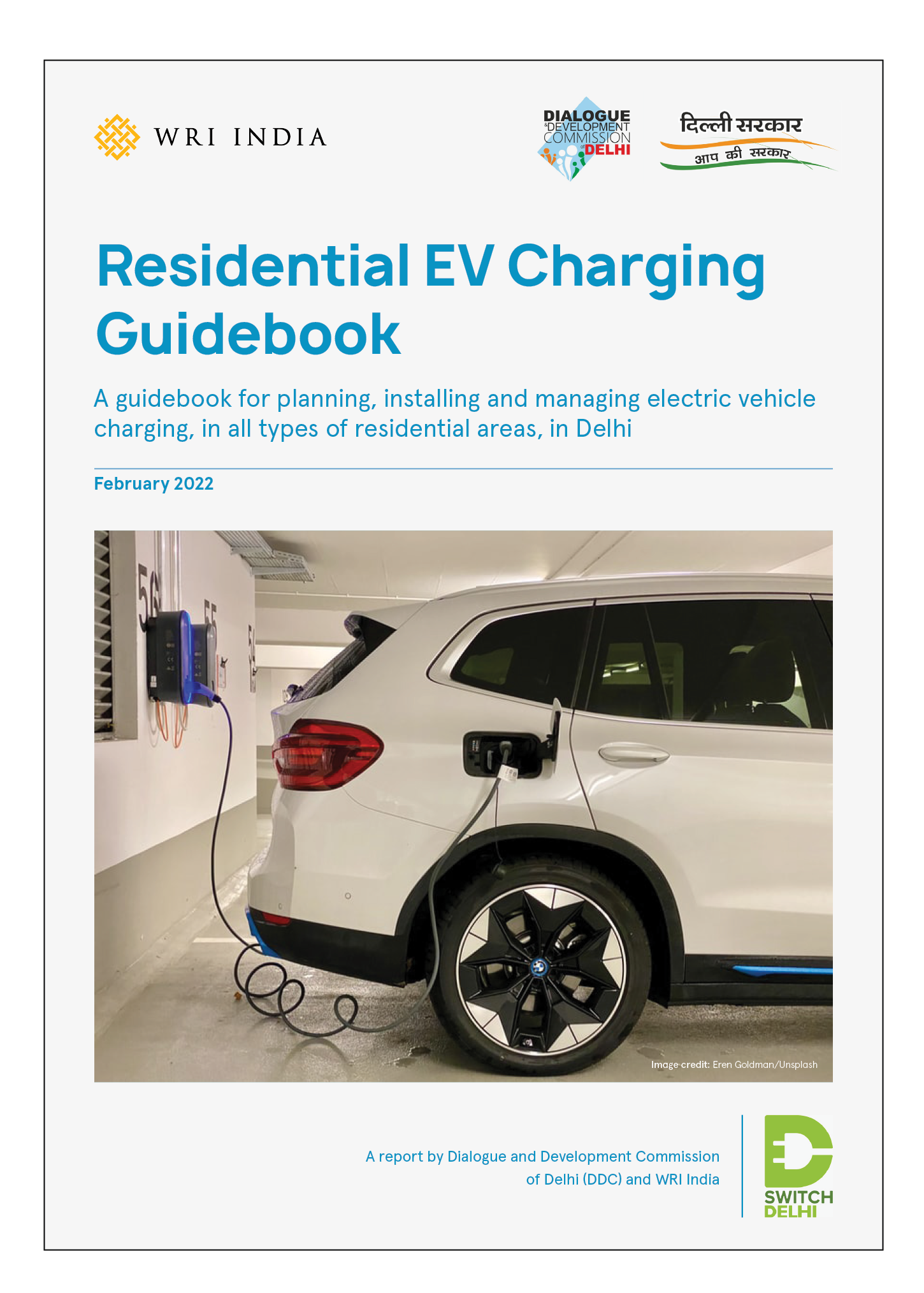
A guidebook for planning, installing and managing electric vehicle charging in all types of residential areas in Delhi
The Residential EV Charging Guidebook seeks to encourage all residential societies based out of Delhi to understand the importance of EV charging, support effective decision-making and set out the way forward for the planning and implementation of EV charging stations in the parking space of the societies.
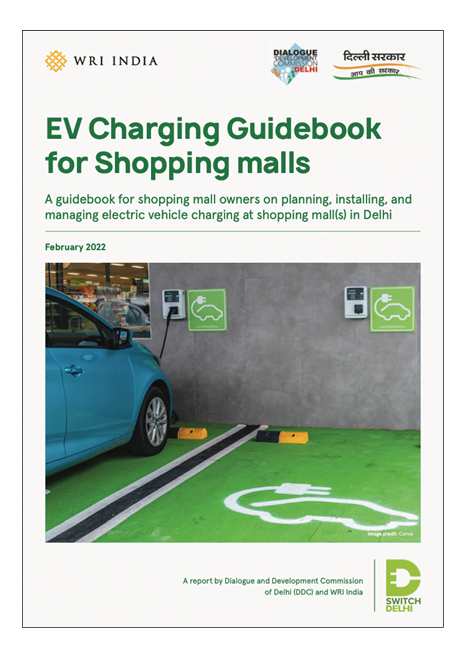
A guidebook for shopping mall owners on planning, installing, and managing electric vehicle charging at shopping mall(s) in Delhi
The EV charging guidebook for shopping malls provides step-to-step guidance to mall owners on planning, installing, and managing electric vehicle charging at shopping mall(s) in Delhi.
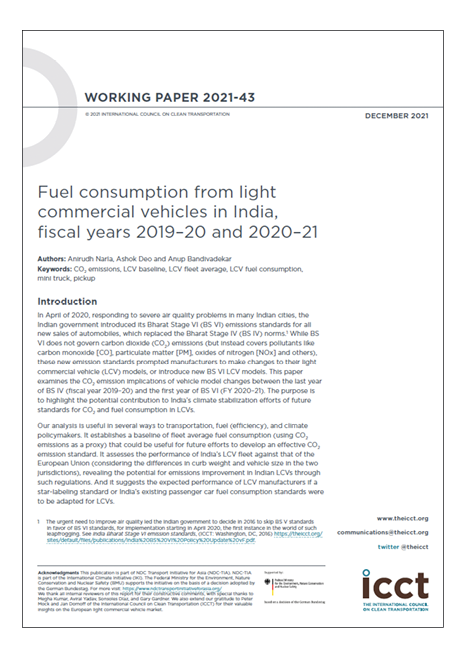
Fuel consumption from light commercial vehicles in India, fiscal years 2019–20 and 2020–21
This paper is a continuation of the series of working papers on the Indian LCV market, dating back to 2016. it focuses on the N1 (load-carrying LCVs) category of vehicles, which consists of mini trucks and pickups. It includes a brief comparison with the performance of the M1 (passenger cars) category of vehicles
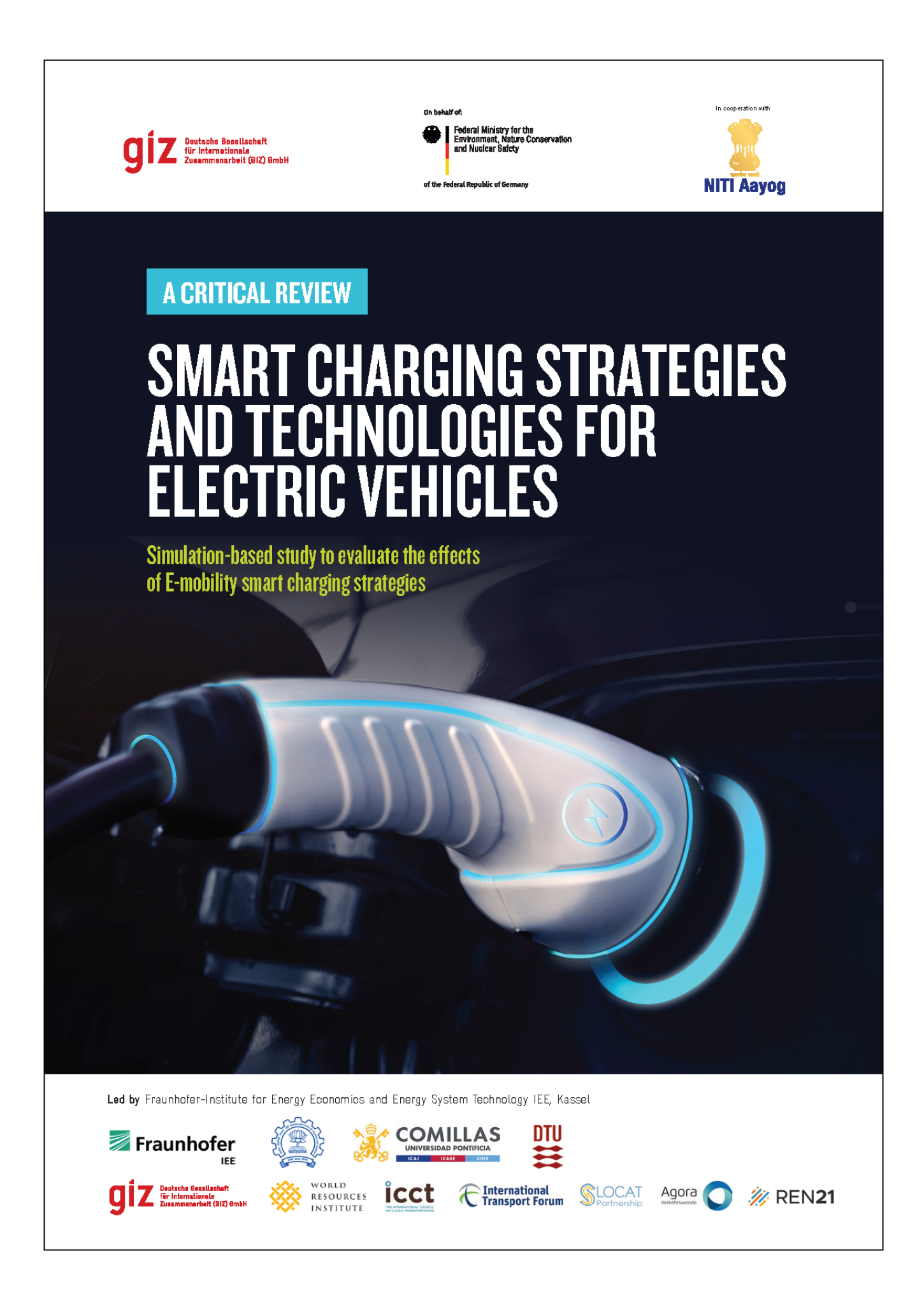
Smart Charging Strategies and Technologies for Electric Vehicles
This GIZ India-led report focuses on Electric Vehicles (EV) smart charging strategies and approaches, related policy and regulatory measures, technical aspects, grid integration of EVs, and the way forward for smooth EV adaption in the Indian EV ecosystem.
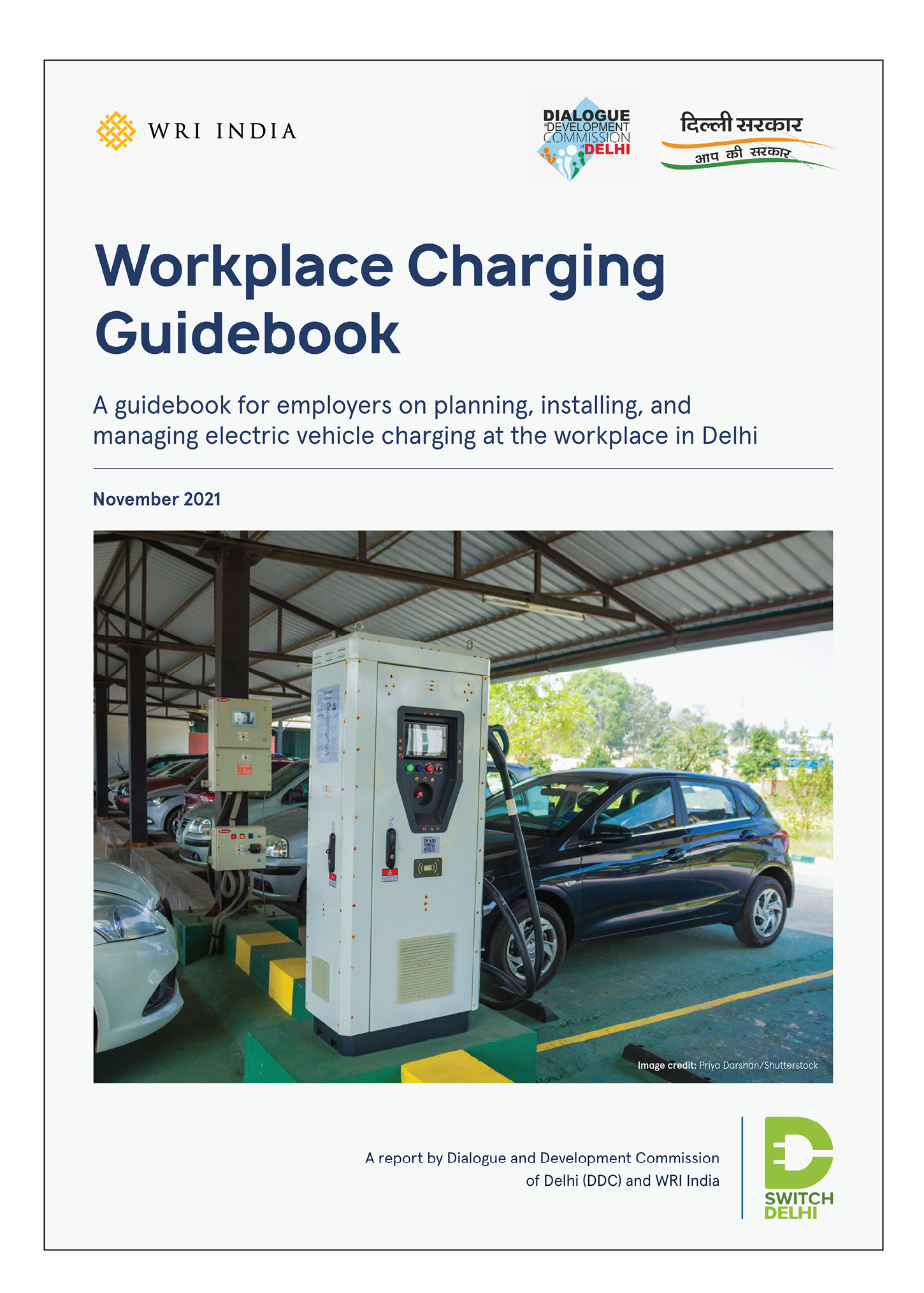
A guidebook for employers on planning, installing, and managing electric vehicle charging at the workplace in Delhi
The Workplace EV Charging Guidebook provides step-wise guidance for employers on planning, installing, and managing electric vehicle charging at their workplace in Delhi.
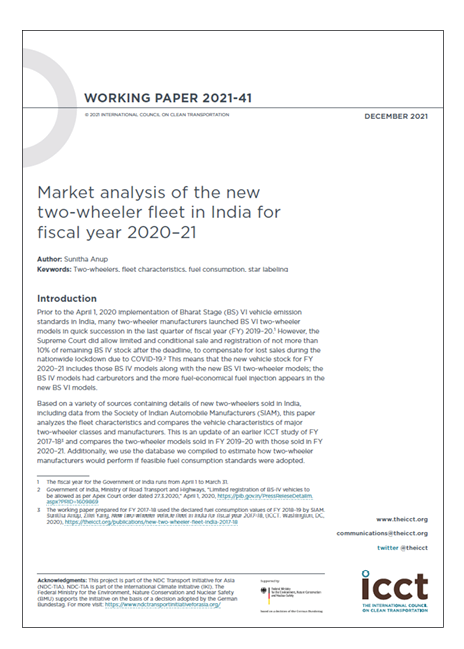
Market analysis of the new two-wheeler fleet in India for fiscal year 2020–21
This study analyzes fleet characteristics and compares the vehicle characteristics of major manufacturers and classes of new two-wheelers sold in India for the fiscal year 2020-2021.
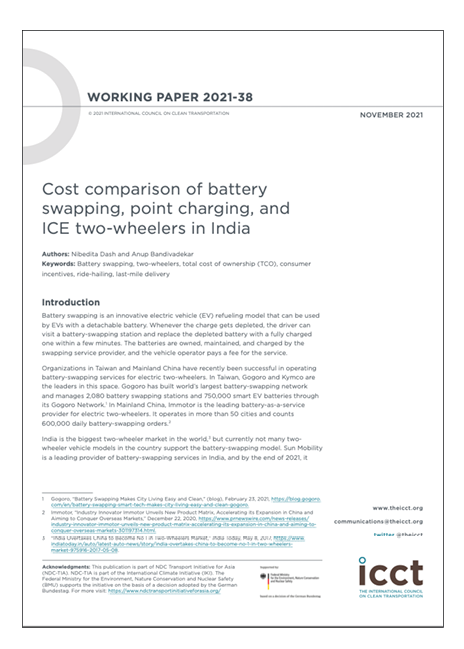
Cost comparison of battery swapping, point charging, and ICE two-wheelers in India
Battery swapping is an innovative electric vehicle refueling model that can be used by vehicles with a detachable battery. This paper evaluates if electric two-wheelers in India with the battery-swapping option have achieved cost parity relative to electric two-wheelers with the point charging option and with conventional gasoline two-wheelers. The results in this working paper show that for all three use cases considered, the electric two-wheelers with point-charging and battery-swapping options are considerably cheaper than the gasoline two-wheeler.
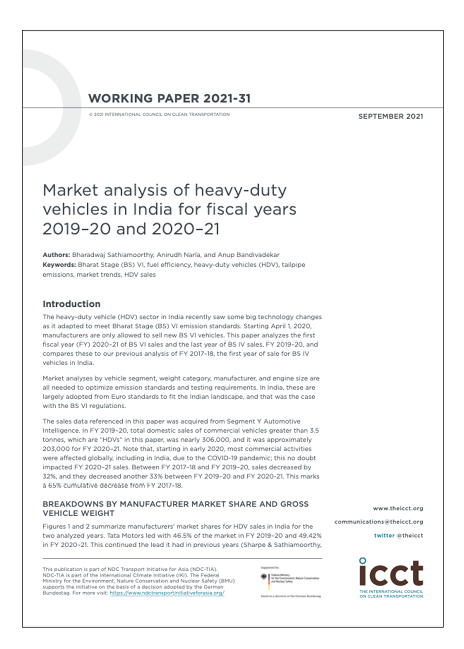
Market analysis of heavy-duty vehicles in India for fiscal years 2019–20 and 2020–21
Market analyses by vehicle segment, weight category, manufacturer, and engine size are needed to optimize vehicle emission standards and testing requirements. In India, these are largely adopted from Euro standards to fit the Indian landscape, and that was the case with the Bharat Stage (BS) VI regulations that took effect April 1, 2020. The heavy-duty vehicle market saw some big technology changes to meet the new standards, and this paper analyzes the first fiscal year (FY) 2020–21 of BS VI vehicle sales and the last year of sales under the previous BS IV standard, FY 2019–20.
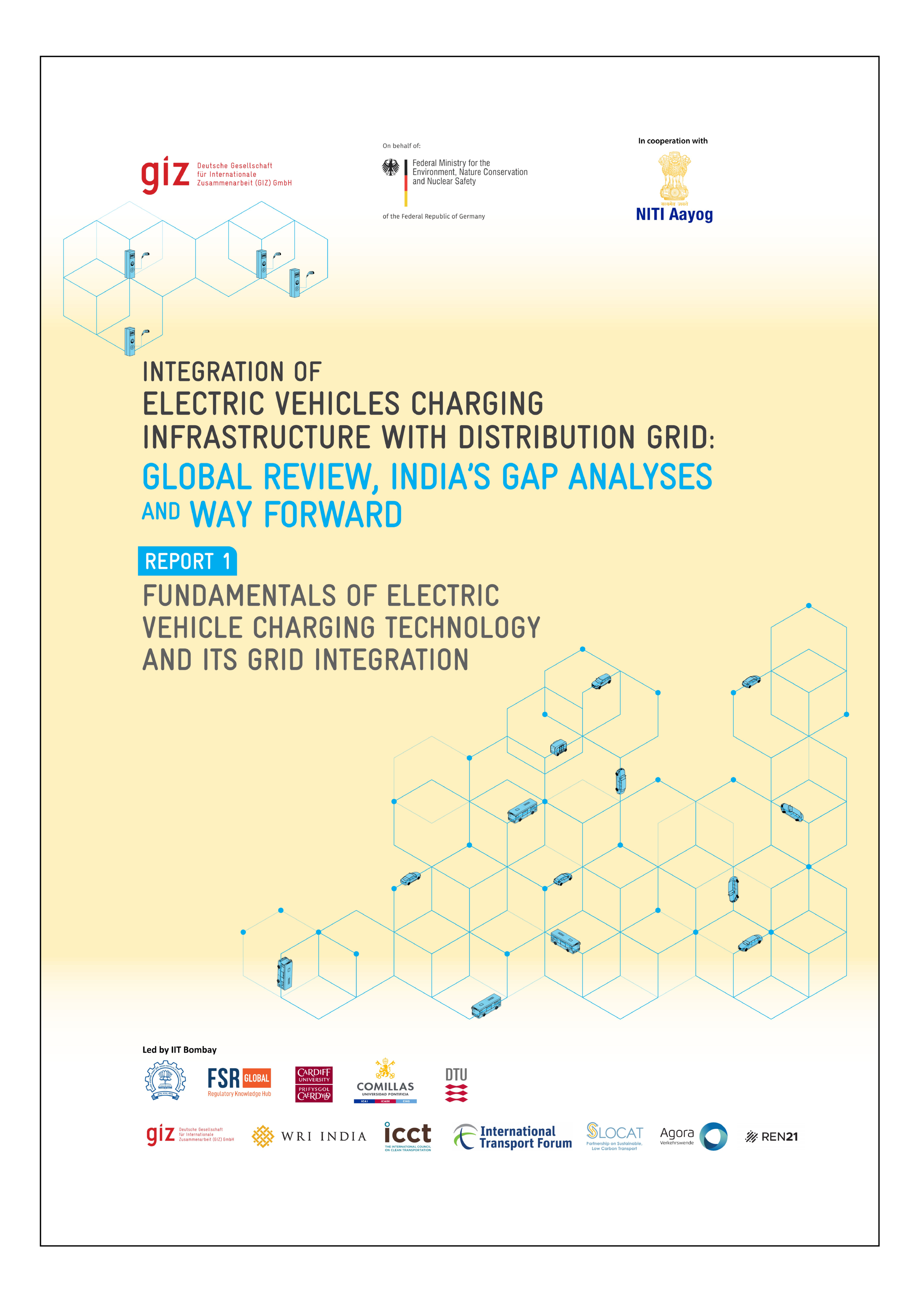
Fundamentals of Electric Vehicle Charging Technology and its Grid Integration - Report 1
The study focuses on EV charging infrastructure, related policy and regulatory measures, grid integration of EVs, and the way forward for smooth EV adaption in the Indian EV ecosystem. This specific report is the first in the series of four reports documenting the fundamentals of EV charging technology, standards, communication protocols, and grid integration of EVs with the distribution system.

International Review of Electric Vehicle Charging Infrastructure and its Grid Integration - Report 2
The study focuses on EV charging infrastructure, related policy and regulatory measures, grid integration of EVs, and the way forward for smooth EV adaption in the Indian EV ecosystem. This specific report is the second in the series of four reports.

Decarbonising Transport in India: Learning from Life Cycle Assessment
This publication presents a summary of the workshop “Life cycle assessment methods to support India’s efforts to decarbonise transport” organized by the International Transport Forum and the National Institute for Transforming India (NITI Aayog) in April 2021.
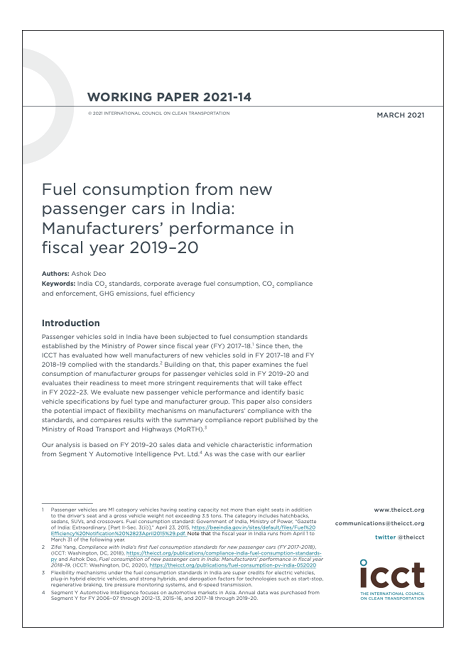
Fuel consumption from new passenger cars in India: Manufacturers’ performance in fiscal year 2019–20
New fuel consumption limits for passenger vehicles are scheduled to take effect in India in FY 2022–23, and this paper examines the performance of manufacturer groups with respect to new passenger vehicles sold in FY 2019–20.
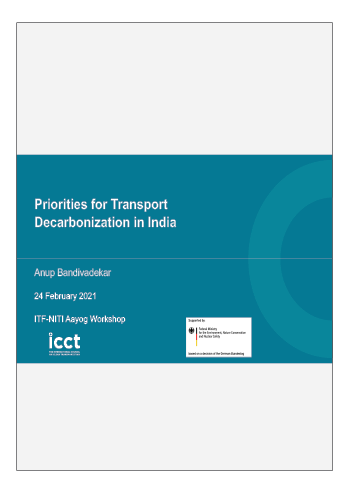

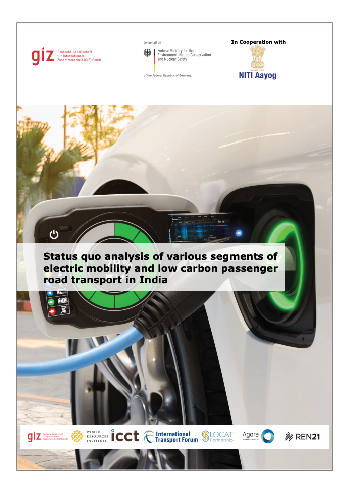
Status Quo Analysis of Various Segments of Electric Mobility And Low Carbon Passenger Road Transport in India
This analysis provided us the existing status, opportunities, challenges, gaps, and way forward for low carbon road transport in India.
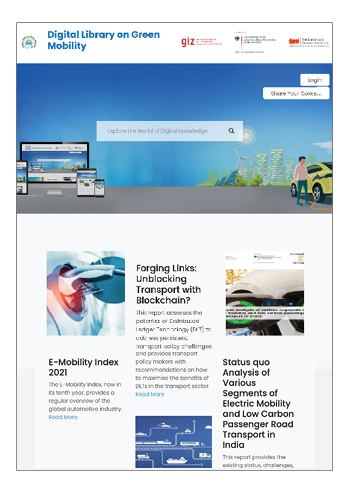
Digital Library on Green Mobility - DLGM
The Digital Library on Green Mobility aims to provide a platform for sharing ideas, knowledge, and draft documents among the different stakeholders of various organizations and institutions from India and abroad involved in Low Carbon Transport in India.
